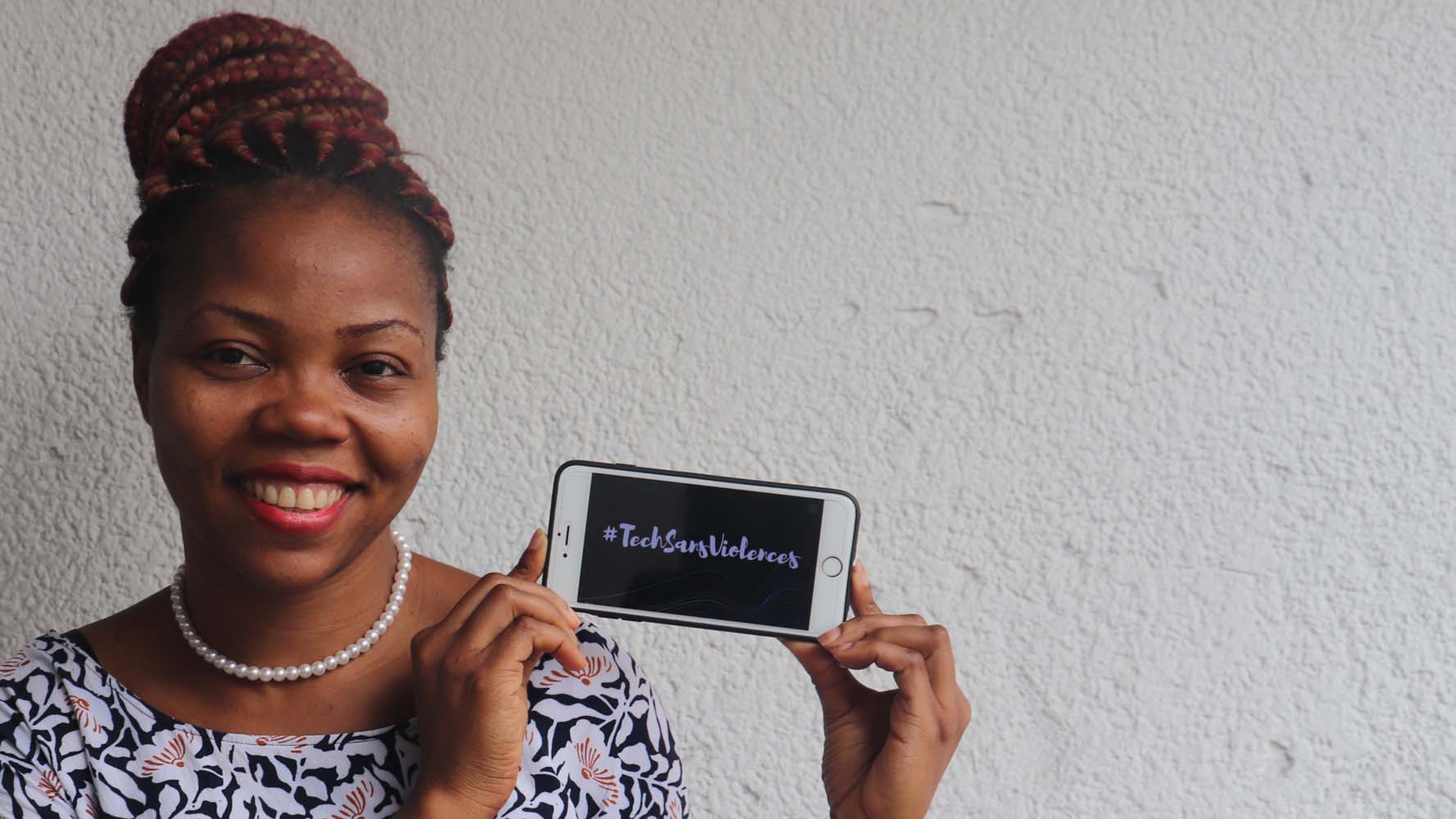Congolese women strengthen their digital skills to fight online violence
Story

After participating in a workshop on online sexual and gender-based violence and cybersecurity, Solange* felt the weight of recent events fall from her shoulders.
One of her online accounts had been hacked, with the perpetrator demanding sexual favours in exchange for deleting sensitive content. For many months, Solange believed she was at fault for what happened.
But, through the training with Kinshasa-based feminist organization Si Jeunesse Savait (If Youth Knew), supported by Cuso International, she realized she was a victim of online violence and that help is available. She also realized she could arm herself with knowledge and skills to prevent such attacks in the future.
“Without education, training, and intervention, many Congolese girls and women are powerless in the face of online harassment,” says Félix Mukwandja Iluba, Program Officer, Cuso International, Democratic Republic of the Congo (DRC). “Unfortunately, many are unaware of the risks the internet exposes them to and the potential profound consequences. This training gave them the skills to prevent and address online violence, and the ability to empower others by sharing their knowledge.”
Internet and cell phone use is rapidly increasing in DRC, with figures from January 2021 showing a 29 per cent increase in internet users over the previous year, and a 5.3 per cent increase in cell phone users in the same period. However, with little access to education, Congolese girls and women are at great risk of online violence, particularly as many begin to speak out about gender inequity and women’s rights issues in DRC. Only 52.7 per cent of girls aged 5-17 have access to quality education in the country.
Twenty members of the Si Jeunesse Savait team took the training to build their capacity to deal with acts of gender-based and sexual violence online. The workshop included activities to raise awareness about the broader online community; how to manage acts of violence online; and how to support victims and their efforts to seek justice.
“With this training, my staff and I learned strategies to protect our online data, accounts, and identities, applications (apps) to avoid, and how to safely navigate the internet,” says Richine Masengo, Executive Director of Si Jeunesse Savait. “We have acquired skills to train other activists and learned how to effectively protect ourselves and others.”
Following the workshop, Si Jeunesse Savait created an online awareness campaign using the hashtag #TechSansViolences (#TechWithoutViolence), which aimed to educate and empower girls and women on how to avoid online violence, how to access support, and how to heal if they had already been targeted. The campaign reached more than 50,000 people through Facebook, Twitter, Instagram, and YouTube.
After hearing about the campaign’s success, Si Jeunesse Savait was invited to share their expertise at the Higher Institute of Applied Technology and to present the success of the project to members of the Internet Society DRC. Si Jeunesse Savait has also been invited by at least 13 other organizations to train staff on how to manage online sexual and gender-based violence, providing them with effective prevention and intervention strategies.
Marie-Nathalie Bakankengesha Tshondo Zaina, an administrator at Si Jeunesse Savait, says the training shifted her thinking regarding activities online and gave her strategies to keep herself and others safe.
“I no longer blindly accept the privacy rules proposed to me on social networks or search engines,” says Marie-Nathalie. “I could never be stalked or hacked again, and even if I were, I would know how to react. This project has really strengthened my information and communications technology skills.”
*name has been changed